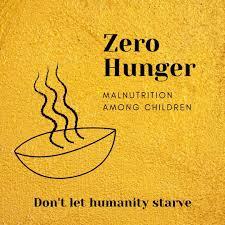Achieving zero hunger is a critical goal outlined in the United Nations' Sustainable Development Goals (SDGs), aiming to eradicate hunger, ensure food security, improve nutrition, and promote sustainable agriculture by 2030. This initiative recognizes that access to sufficient, safe, and nutritious food is a fundamental human right. To achieve this, it is essential to address the underlying causes of hunger, including poverty, inequality, and conflict. Strengthening agricultural productivity, particularly among small-scale farmers, and promoting resilient agricultural practices are vital components. Additionally, reducing food waste and ensuring fair distribution systems can significantly contribute to food security. Collaboration between governments, NGOs, private sectors, and local communities is crucial to implementing effective strategies. Education and empowerment of women and marginalized groups also play a pivotal role in combating hunger. By taking a comprehensive and inclusive approach, the global community can work towards a future where everyone has access to the food they need to lead healthy and productive lives.
Record
Recording 00:00
Commenting has been turned off for this post.
Kategoriler
- Sustainability
- Home
- Wellness
- Theater
- Sports
- Shopping
- Religion
- Party
- Other
- Networking
- Music
- Literature
- Art
- Health
- Gardening
- Oyunlar
- Food
- Fitness
- Film
- Drinks
- Dance
- Crafts
- Causes
Read More
world toilet day
World Toilet Day 2024: A Call for Resilient SanitationThe 2024 campaign for World Toilet Day...
The Beauty and Importance of Nature
Nature is the most precious gift given to us by God. It includes trees, rivers, mountains,...
What is cancer and what causes it?
Normally cells grow and divide to form new cells as we need it when they become old or damaged...
The impact of technology on communication
Technology has profoundly impacted communication by:
1. **Instant Connectivity**: Facilitates...
×
Your daily access limit has been reached. Please try again tomorrow.
© 2026 GoSharpener Pvt.Ltd.
Refund and Cancellation policy - We do not entertain any refunds and cancellation
Refund and Cancellation policy - We do not entertain any refunds and cancellation

